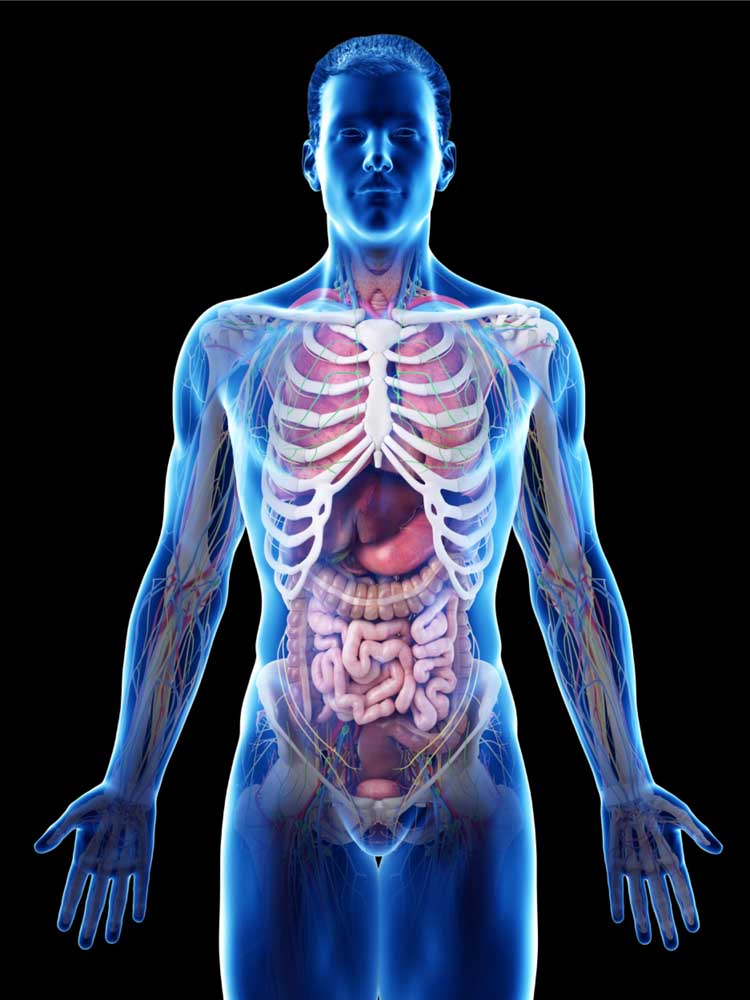Commentary: What I learned about the human body from a fall
Published 9:00 pm Thursday, April 25, 2024

- Human body
I do not remember the act of falling, but I do recall picking myself up from the sidewalk and pulling a Kleenex from my pocket to dab at my injured forehead. Amazing, I thought, my blood so vividly red. Such great oxygenation. The sensation was wonder, and I knew this feeling was bizarre, for I obviously had taken a hard fall. I would later remember staggering to my front door, where my mind went blank.
I awaken on a stretcher in an ambulance. I work to put the situation together. I was walking home from the post office, rushing because I had an appointment. I was making good time until I encountered two elderly men walking ahead of me. I felt fully charged, and the slowpokes were blocking my way. I recall thinking I was lucky to have such a flourishing body for a physician approaching his 70th birthday. As I sprinted around the old guys, I stumbled and fell. I passed out, and yet somehow, I got home. This is a mystery. So I ask the EMT at my side, “Who called you?”
“You did.”
When I regain consciousness, I am stretched out on a hospital bed. A man is appraising my facial wounds. He introduces himself and tells me I am in the emergency room. Dr. Case is youthful in the prime-of-profession way that I once was, energetic and confident. I’m not going to tell him I’m a doctor; I can imagine the pressure he’s already under, the rush. He spreads a blanket over me, and only then do I realize I must have been shivering. My thoughts have clearly overtaken my sensations.
Such a random process, I think, the way the brain assigns priorities —sensations one moment, thoughts once the damage is done. Sometimes, the opposite.
I am taken to the radiology suite, where the CT of my head shows no bleeding, no notable abnormalities. “Just some hardening of the arteries,” the doctor says.
Later that night, as my husband watches over me at home, he asks, “Who called the ambulance?” I tell him that the EMT said I did, but I do not remember calling anyone. We guess it must have been a bystander. And then it strikes me: I made it to the house, so maybe the Ring camera at our door caught something.
In the camera’s video clip, I look bewildered, pitiful. I am sitting on the steps and talking to the 911 operator. I tell her I am confused, very confused. My voice is cracking. I sound feeble. The sudden appearance of D.C. emergency responders appears to baffle me. Before the video ends, I am swaying. The video closes with the EMTs approaching my body.
One of the most memorable lectures during my medical school years began with a distinguished professor grasping the lectern with both hands and carefully surveying our class. John Bower, a physician specializing in kidney disease, then said in a deliberate, somber voice: “What I first want you to remember is that at least half of what we think the human body is teaching us will likely be proven wrong. Unfortunately, I do not know which half will remain true.”
An icy silence settled over our class, and I feared my classmates were now questioning the professor’s expertise. Of course, scientific understandings change over time — why so portentously state the obvious? I consider the mysterious chasm between the truth of my sensations and the truth revealed by the Ring camera. The mystery recalls the silence in that long-ago lecture room, for my wounded thoughts and feelings have teamed up to explain Professor Bower’s seemingly pointless caveat on the science of the human body.
In his 1628 groundbreaking treatise on the circulation of blood, William Harvey emphasized to his readers that — regardless of their expertise or knowledge — they were human beings who must live within the mysteries of the human body as well as study them. Even “learned physicians,” Harvey wrote, must know “full well that to err, to be deceived, is human.” It had taken decades and a Ring video for me to understand the deeply personal point in Bower’s introduction to the science of the human body. The lesson was humility. The feeling was wonder.








